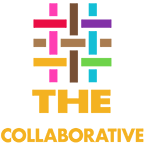

May 19th is National Asian & Pacific Islander HIV/AIDS Awareness Day. According to AIDSVu, the rate of viral suppression among Asian people in the U.S. (68%), is higher than the national average (65%). Today, we recognize the impact of social determinants of health and cultural factors such as stigma, language barriers, and discrimination as challenges to HIV treatment and prevention. Let’s work to combat stigma and increase HIV screening, prevention, and treatment services among API communities.
Pacific-AETC Resources

HIV Learning Network – Culturally-Based Programs to Improve Engagement and Health Outcomes: Addressing Stigma for Native Hawaiian with HIV
Learn more with the HIV Learning Network’s Culturally-Based Programs to Improve Engagement and Health Outcomes: Addressing Stigma for Native Hawaiian with HIV. This presentation was giving on April 23 @ Noon (Pacific) by Malulani Orton, Native Hawaiian Medical Case Manager, Hawai’i Health & Harm Reduction Center.
HIVLN – Addressing Opioid Use Disorder in Asian Americans, Native Hawaiians and Pacific Islanders with HIV
This presentation was giving on April 23 @ Noon (Pacific): Culturally-Based Programs to Improve Engagement and Health Outcomes: Addressing Stigma for Native Hawaiian with HIV, by Malulani Orton, Native Hawaiian Medical Case Manager, Hawai’i Health & Harm Reduction Center.
Social Determinants of Health and HIV among Asian, Native Hawaiian, and Pacific Islander people:

Although Native Hawaiians and Other Pacific Islanders (NHOPI) account for a very small percentage of new HIV diagnoses in the United States (US) and dependent areas, HIV affects NHOPI in ways that are not always apparent because of their small population size. In 2018, NHOPI made up 0.2% of the US population. Check out this CDC page to get the latest data on HIV among NHOPI, learn about the prevention challenges that some face, and discover the progress being made.
Through direct, on-site training, and multi-platform distance learning methods, Pacific AETC-HIAPI bridges the enormous distances of the region to strengthen HIV clinical care, testing, and prevention efforts for native Hawaiians and Pacific Islanders.



